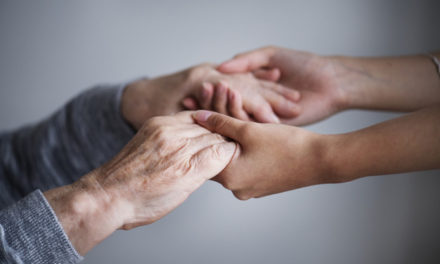
MANGUERA MEMORIES: Being from Brownsville, a small border town on the southern most tip of south Texas, brought with it experiences, conversations and stories that were fraught with “La Migra” y los “Pinches Rinches” . . . now known as the INS and Texas Rangers (dis)respectively. I have foggy, distant memories that although reflect incidents that took place close to 50 years ago, the sounds and emotions of those incidents and experiences flood my conscience as if it was yesterday. On any given early morning, our barrio that surrounded Garfield Park was buzzing with activity: La radio carefully placed on the kitchen window sill tocando at full volume blasting Los Cadetes de Linares, las lavadoras starting up and grinding out toda la ropa de las semana antes, la agua del sink used one minute to wash los trastes y the next minute to fill las cubetas para trapiar, the scents of Pine Sol, frijoles cooking en la olla and tortillas on the comal . . . all this work was coordinated like only a good “criada bien criada” could do. Every other house seemed to have a . . . pues for a lack of better words, and calling them what they were . . . seemed to have a maid. Women con brazos de tamaleras and the work-ethic of the camaroneras who processed shrimp from daybreak to dusk at the shrimp processing plant on 14th Street (La Catorce). Las criadas were also wet nurses when needed, disciplinarians when required, jardineras when paid extra and all around domestic engineer superstars 24/7. They were someone’s mother, someone’s daughter, someone’s wife, someone’s sister, someone’s widow, someone’s girlfriend and, every once in while, someone’s sancha when duty called. That working group of women who came across the bridge on Sunday afternoons into American homes of Mexicanos, Judios, Gringos and left back to their motherland on Friday nights were a resourceful group of women. On any one of those given mornings, while working en las casas Americanas, the phones would start to ring. Juanita from the house near International Boulevard would start the calls, a phone chain if you will, all down Hayes Street, then Garfield St., then back all the way to Grant St., then Lincoln St. . . . YA VIENE LA MIGRA!!! All the mujeres would be on full lock-down alert. The radios were turned off, the windows were shut closed, the children were brought inside from their playgrounds in the park, in the front and back yards, doors were locked, curtains drawn and washing machines came to a dead halt. Children were scolded in the most stern yet silent ways. Callate!!!! Within minutes, all you could hear were the squawks de las gaviotas and los cantos de las cicadas. Then suddenly, you started to hear knocks on doors that creeped closer and closer, house after house, door after door . . . “ BOOOO EN NOOO. Ahh Bray Poo Eehr Tah Americano Immigration aqui.” The Border Patrol would be conducting a regular sweep of the barrio, looking for criadas to deport by way of a quick ride back to El Puente. Although our Maria and Angelita never fell victims to one of these sweeps, many others did, leaving children to other criadas for emergency care until their parents could leave work and come home for the day to care for them, or pay the criada next door extra dinerito to care for their kids, or drop them off at the neighborhood daycare, Tiny Tots, for a day or two, until Juanita, Pina, Tencha or Nachi, could find their way back and pick up where the Border Patrol disrupted their day. For those that were spared, the days resumed as soon as La Migra was out of sight, back to la radio, la ropa, la cocina, el trapiador . . . vamonos para fuera a colgar la ropa y a rregar las matas con la manguera . . . make sure you don’t water el chile piquin too much porque si le hechas mucha agua no crecen y no tenemos chiles para dinner. Las criadas were indeed teachers of networking and resourcefulness, they filled-in when our hard-working parents could not, they knew about resiliency, they had dreams. Those same dreams lived through their children and they carried on through the children they helped raise. Y la Migra, well, la Migra gave us all a common enemy then, and to this day still.









